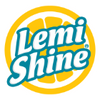Clean Eating on Clean Dishes
Time to Come Clean
The word “clean” has taken on a whole new meaning these days. “Clean eating” may be all the rage, but everyone has their own definition of exactly what “clean” even means. Paleo, Whole30, macrobiotic, vegan, vegetarian, pescatarian and Mediterranean are just a few of the diets that claim to be “clean.” Then there’s organic, non-GMO, free-range, pasture-raised, grass-fed… There’s no end to the labels and jargon. It can be confusing, making some believe if you aren’t part of a movement, you must be eating “dirty.”
That’s why we’re pioneering clean cleaning. To us, clean still means sparkling dishes that not only don’t have your morning avocado toast cemented to your plate, but they were cleaned with the power of citric acid. You shouldn’t see specks of your green smoothie spackled on the bottom of your glass or spotty flatware that looks like your kid sneezed on it. Whether you slap a 16-ounce steak on your plate or prefer a bowl of quinoa with roasted Brussels sprouts, you want to know your dishes are getting a clean clean.
Diets may come and go (remember Sugar Busters and South Beach?) and clean eating may prove to be great for the long haul, but eating on clean dishes never goes out of style. What does it mean to have clean dishes, anyway? And does it really matter how you get them clean? So glad you asked.
Clean Means Clean
Canned spinach is gross. You know what’s grosser than gross? Traces of last night’s canned spinach stuck between the tines of your fork. Some believe using traditional dishwashing detergents will do the trick, breaking down food particles the dishwasher then rinses away. Great theory, but how do many of these conventional detergents work?
They typically rely on chemicals that annihilate food – but at what cost? Some of their ingredients are known skin and eye irritants, cause respiratory problems like asthma, and have even been linked to cancer. That’s right. Those “clean” dishes don’t seem so clean anymore, do they? Sure, traditional brands may get your dishes looking clean, but dig a little deeper and you find they may not be the types of products you can feel good about bringing into your home. If you’re cutting out the bad ingredients in your food, shouldn’t you also nix them from your cleaners?
Would a safer choice – for instance, a detergent that uses citric extracts instead of phosphates, give you a little peace of mind? We think so. Because clean dishes should be truly “clean.”
Related: Power-Up Your Laundry with Citric Extracts
Clean Means No Residue
Now that you know the cold, hard truth about traditional dishwashing detergents (sorry to spoil your appetite), it may make you think about the irony of putting your “clean” food onto “dirty” plates. Good thinking. Some of those chemicals linger like the smell of broccoli steaming on your stovetop. Toxic residue is the last thing you want mixing into your bowl of miso soup. We get it. We’re not much for toxic seasonings, either.
When you purchase a product that’s Safer Choice certified, you can be sure your dishes are as clean as they look. Products with this certification have been thoroughly evaluated for safety by an independent organization. Just look for the Safer Choice label on the packaging. That means the product passed the test and doesn’t contain chemicals that have been found to be potential hazards to your health or the environment. That’s the type of clean we at Lemi Shine can get behind.
Clean Means No Hard Water Deposits
Besides nasty chemicals and residue, there’s another annoying issue that prevents dishes from being truly clean. It’s those foggy, cloudy spots on flatware and glassware than make them look old and dirty, even when they’re just pulled out of the dishwasher. Those spots aren’t dirt – or food, for that matter. They’re hard water deposits.
Related: Cleaning Solutions for Hard Water
Hard water gets a bad rap, but it’s really only minerals like calcium and limestone that are common in tap water. When the dishwater dries, it can leave mineral deposits on your dishes, making them look blah instead of sparkly clean. You know what prevents hard water deposits on your dishes? Yep, you guessed it. Citric acid.
Citric acid-based detergents and hard water dish detergent boosters go head to head with minerals in hard water, binding to them so they can be rinsed away. The citric extracts also lower the pH in your hard water, making the water soft. Citric acid may sound like it plays nice, but it packs a powerful punch when it comes to cleaning. It proves all you need is a little Lemi Shine to get the job done.
Let’s Talk about Clean
So, the next time your friends go on and on about their newfound commitment to clean eating this year, tell them you’re going to focus on clean eating, too – eating on clean dishes. You may get a strange look, but now you have some talking points to get them thinking. And hey, eating on clean dishes is a heck of a lot easier than giving up ice cream and French fries.
